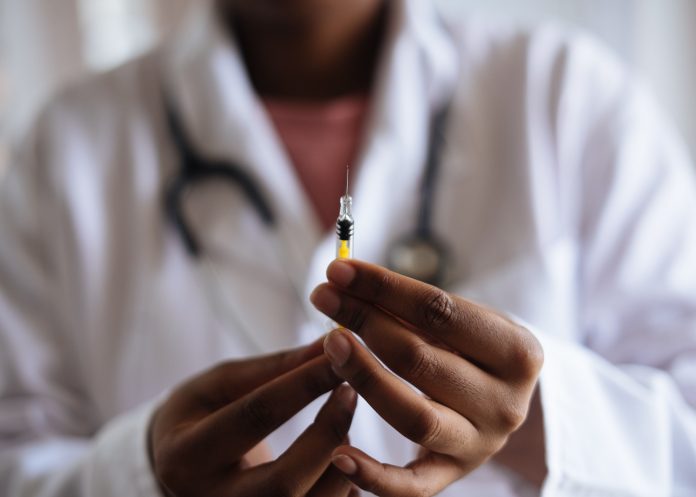CARPHA is a regional public health agency headquartered in Trinidad and Tobago which was established by CARICOM leaders in July 2011 and began operation in 2013. They urge their members to maintain vaccine coverage while fighting COVID-19.
Although there is no vaccine against the novel coronavirus disease (COVID-19), vaccinations against seasonal influenza and measles are available to prevent respiratory illness and vaccine-preventable disease outbreaks during the COVID-19 pandemic. If vaccination programs are not continued, more people are likely to get sick from vaccine-preventable diseases, thus increasing the burden on the already strained health systems.
Coronavirus disease (COVID-19) is an infectious disease caused by a newly discovered coronavirus. The virus is transmitted mainly via small respiratory droplets through sneezing, coughing, or when people interact with each other for some time in close proximity (usually less than two meters).
Given the outbreak of COVID-19 in the Caribbean region, it is important that people take the necessary steps to protect themselves and their loved ones. Because the virus is new and different it requires its own vaccine. Research is currently underway to develop a vaccine.
Dr Joy St John, Executive Director at the Caribbean Public Health Agency (CARPHA) states, “Safe and effective vaccines have been available and used for over 60 years, and vaccination remains the most effective way to prevent influenza, measles and other vaccine-preventable diseases. Once a COVID-19 vaccination becomes available in the Caribbean, CARPHA is assured that the same care and due diligence would have been in place in developing the vaccine, as has been in place for the development of vaccines against respiratory illnesses.”
The Caribbean has long been a leader among regions of the world, as our countries have applied high standards in the delivery of vaccination programs. While successfully maintaining a measles-free status since 1991, the Caribbean has also been eradicated of endemic smallpox in 1971, polio in 1994, and rubella and congenital rubella syndrome in 2015. The health of the general public improved drastically with the vaccinations that allowed children to survive because they no longer developed severe measles infections.
If we fall behind in our immunization programs we run the risk of recurrence of measles and other previously eradicated diseases. In light of this, CARPHA is urging governments to continue to maintain their vaccine coverage as a matter of priority, so Ministries of Health do not have to manage outbreaks of vaccine preventable diseases like measles, while fighting the COVID-2019 pandemic.
The World Health Organization (WHO) recommends annual vaccination, which is especially important for health workers and people at higher risk of serious influenza complications, such as the very young, pregnant women, the elderly and chronically ill persons, and for people who live with or care for high risk individuals.
Dr. St. John explains that the primary form of transmission for COVID-19 and the flu are through the movement of droplets between persons and direct physical contact with the virus even on surfaces. She added that large social events can create serious public health challenges because persons are often crowded together, making spread of COVID-19 from person to person very easy.
CARPHA encourages persons to continue to practice good personal hygiene in order to reduce the risk of transmission of the coronavirus disease (COVID-19), influenza and other respiratory viruses. Good hygiene measures that persons can take include:
· Covering your mouth with a tissue or sneezing or coughing into the crook of your elbow.
· Safely disposing of used tissues.
· Washing your hands with soap and water for at least 20 seconds after coughing and sneezing and before and after meal preparation, eating and using the toilets. Alternatively, you may use an alcohol-based hand-sanitizer.
· Avoiding contact with others by staying home if you are sick.
· Cleaning and disinfecting surfaces regularly.
This year, between April 25 and May 2, 2020, CARPHA joined its partners and the rest of the world in celebrating the 18th annual Vaccination Week in the Americas with the slogan “Love. Trust. Protect. #GetVax.” This year’s campaign seeks to bring to mind the love people have for their children, themselves, and their communities; the trust in vaccines´ ability to save lives; and the protection they provide from diseases for everyone, everywhere.
“To maintain our community protection, we call on Ministries of Health to implement catch-up campaigns. This will ensure that a person completes their vaccination schedule in the shortest, but effective time frame. Continued vigilance is important, and general practitioners should remain alert and take the appropriate actions in suspected cases of vaccine-preventable diseases,” said Dr. St. John.




















